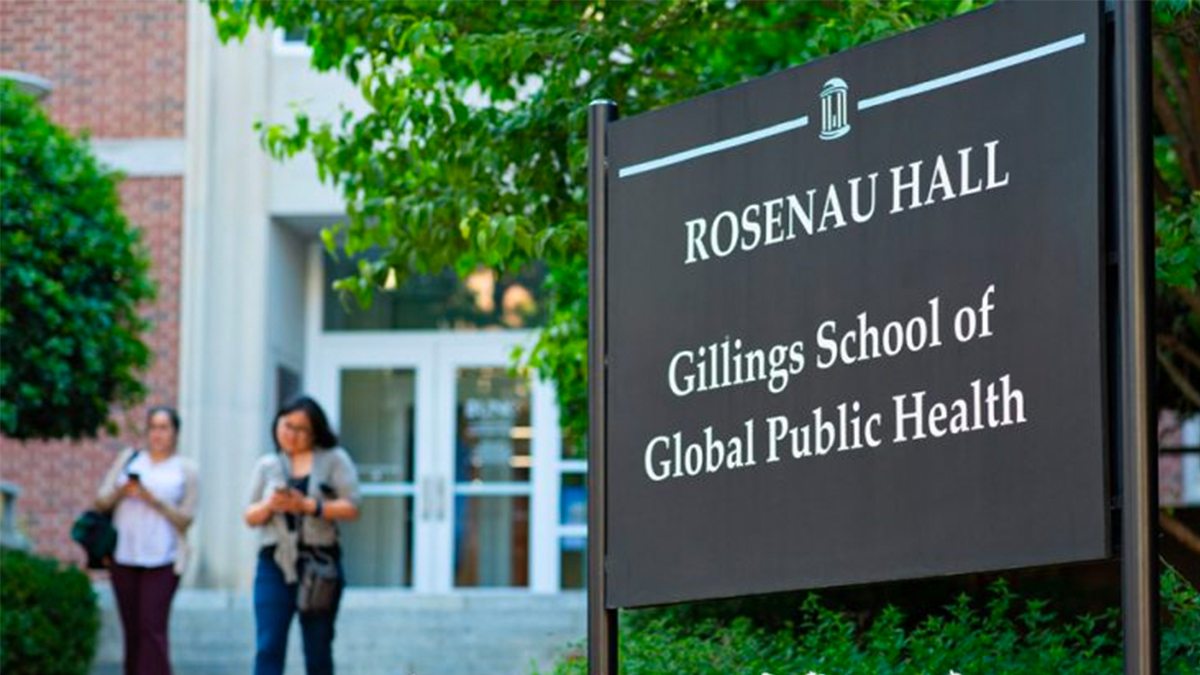Gillings School adds BS degree in community and global health
The school’s health behavior department will accept the program’s first students in August 2025.

Beginning this fall, undergraduates may apply for the new Bachelor of Science in Public Health degree program in community and global public health at the UNC Gillings School of Global Public Health.
The UNC System Board of Governors approved the new program through the school’s health behavior department on Feb. 29. The first class of students will start in August 2025.
“We are thrilled that the Board of Governors approved our new BSPH program. Nationally, more students now earn a BSPH degree than an MPH degree. Our new program will provide much-needed training to Carolina undergraduates interested in a career in community and global health,” said Kurt M. Ribisl, health behavior department chair and Jo Anne Earp Distinguished Professor.
The department began working on the program in 2019, just as new degree programs were paused during the COVID-19 pandemic. “Despite the pause in approving new degree programs, we continued our planning efforts and started offering new undergraduate classes taught by various faculty and staff at the Gillings School,” Ribisl said.
Patsy Polston, assistant professor in the health behavior department, will serve as the new CGPH program director. Polston received her doctoral degree from the school’s environmental sciences and engineering department and earned a minor in health behavior. She also serves as the faculty adviser for the Minority Student Caucus.
“I’m excited about our new BSPH program and looking forward to engaging with undergraduates as we collectively think towards solutions to address today’s pressing public health challenges,” Polston said. “We offered several of the required courses this past year and the undergraduate students have been phenomenal. Our teaching team eagerly awaits our first cohort of juniors in August 2025.”
Multidisciplinary program
The mission of the BSPH program in community and global public health is to prepare students to work in partnership with local and global communities to identify and address health problems to achieve health equity.
The curriculum emphasizes equity-centered and high-impact practices such as team-based learning and experiential education and will offer more specialized training in data-driven community and systems-based public health.
The program will leverage a compendium of over 300 community partners to allow students to work with diverse stakeholders with coursework and immersive experiences. A partnership with other UNC System schools provides collaborative activities like joint seminars to offer shared learning opportunities with undergraduate students. There will also be opportunities for collaboration within UNC-Chapel Hill. For example, the Carolina Center for Public Service will offer more undergraduate courses in the health behavior department.
Preparing future leaders in public health
The program is designed to build upon student interest in understanding the systems and behaviors that contribute to public health challenges such as climate change, water crises and the opioid epidemic. To address health behaviors, public health professionals must learn how to engage with communities in both local and global settings to identify public health threats and creative, community-driven solutions.
The new CGPH degree program aims to do just that. One student requirement is the completion of a 150-hour experiential education internship with organizations that will provide them with practice-based opportunities.
The CGPH program will prepare students to work in both the U.S. and global contexts.
“I believe that the training and knowledge they will gain from the program will have a profound and transformative impact both locally and globally,” Polston said.
For more information about the BSPH program, go to the health behavior department website or contact Polston.







